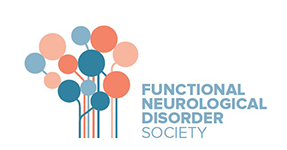Respectful Communication & Exchange of Ideas Mission
Overview: The Functional Neurological Disorder Society is committed to respectful communication and exchange of ideas among professionals. Growth of professionals and ideas can only occur if all good intentioned ideas and discussions are respected, allowed, and productively engaged with in a secure and respectful professional space. This includes finding common ground, honoring shared intent, allowing divergence, respectful agreement to disagree, changing and amending endorsed concepts or ideas over time with professional growth or changing evidence.
Communication Principle 1: Brevity & Good Intent Are Assumed
Efficient scientific and professional discussion often requires brevity. Professional exchanges are not patient communications, they may appear blunt or direct. While FNDS and its provider members are committed to improving the clinical care and scientific understanding of FND, its function is not a patient organization, nor is it intended to be a source of patient emotional support. It is intended to be an organization for professional and scientific growth, and respectful exchange and analysis of ideas among professionals in the field.
Omission of conversationally circumstantial details are often necessary to facilitate focus on the intended conversation topic. All assumptions and additional information behind discussed concepts cannot be explicitly stated, demonstrated, caveated, or explained fully each time it is mentioned, to allow timely paced scientific dialogue. Good or helpful intent should be assumed for any aspect of a concept that is lacking in detailed or caveated explanation. Additional information or clarification can simply be respectfully requested. It should be a default assumption that ideas (and the statements used to communicate them) are not mutually exclusive with other seemingly contrary ideas or perspectives; omission does not automatically indicate disagreement with the unspoken / not-covered idea.
Communication Principle 2: Commitment to Discussion of Difficult Content
Effective scientific research and professional practice growth requires considering all aspects relevant to working in the field of FND. This includes sensitive, and what might be considered controversial or polarized topics in professional practice. This may include topics which are difficult or uncomfortable from a patient, provider, and / or humanity perspective. FND has relevance to emotional functioning, emotional regulation, interpersonal functioning, unhelpful behavioral responses or unhelpful / inaccurate thought patterns, performance validity testing, testing effort, definitions of malingering, agency, brain-body connection, brain-mind connection, dualism, psychodynamic history, and utility of theoretical versus evidenced based hypothesis, among others. FNDS believes discussion of these topics is not in conflict with, or a threat to, evidenced based practice, up-to-date biopsychosocial, and neuroanatomically driven models of FND. FNDS believes the process of scientific discussion and discovery is robust enough to tolerate (and improve) viewpoints or ideas which generate less evidence over time or might be relevant to fewer patients. Clarity and advancement of all ideas can often only be achieved through juxtaposition.
Concepts discussed may be emotionally uncomfortable, but scientifically or pragmatically accurate, meritorious, or historically relevant. The most accurate and helpful scientific concepts, pragmatic guidelines, and discussions regarding human experience often engender strong emotional responses and irrevocably intertwine seemingly opposing truths.
Communication Principle 3: Communication is Human & Robustness to Ideas
FNDS members are human and imperfect, as is their language. They may mis-speak, make an error, respond, or explain imperfectly, have imperfect understandings, or hold ideas which are not the newest and up to date. Language may fail to fully express, capture, or convey the intended meaning, or may hold a different meaning for the receiver than the listener. If an FNDS member (and their language) are good intentioned, and allows discussion with peers, FNDS supports all provider viewpoints and language for discussion. Again, FNDS believes the process of scientific discussion and discovery is robust enough to tolerate (and improve) viewpoints, ideas, or language which generate less evidence, applicability, or robustness over time (for professionals or patients). Given FND is a human condition, what might be considered wholly unacceptable or inapplicable idea to one patient with FND, might make perfect sense or be considered helpful to another patient with FND (even if a smaller minority). A limitation of ideas, language, or approaches may limit the availability and range of understanding, clinical treatments, and scientific discoveries available to all professionals and patients with FND.
Communication Principle 4: No Tolerance for Aggressive Speech
FNDS will not tolerate aggressive speech from its members, professional contacts, or associates. Instances of members or associates engaging in aggressive speech will be reviewed by the FNDS board, who will determine appropriate action based on severity of offense, including possible membership termination or dissolution of association.
For example:
• Threats of physical violence
• Shouting
• Name calling
• Use of profanity in reference to another person or their ideas
• Ad-hominin character attacks
